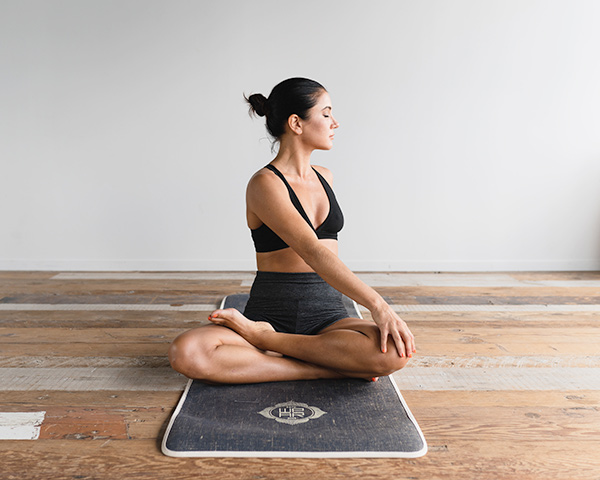
At our best, we may settle into a wellness routine that feels comfortable, rejuvenating and balanced. However, as the seasons change, school routines resume, or COVID19 regulations create new barriers, the rhythm of our routine naturally fluctuates.
Changes in the external world can have a significant impact on our ability to sustain a wellness routine. If we become rigidly attached to our regimen, even the smallest interruptions can be jarring and uncomfortable. We can easily find ourselves out of balance, frustrated and yearning for what was.
The founder of Acceptance and Commitment Therapy (ACT), Dr. Steven Hayes, describes the importance of psychological flexibility for adapting to our changing experience. Psychological flexibility is the ability to live fully connected with the present moment and flexibly engage in behaviors that are effective in bringing us closer to our values. Building psychological flexibility means strengthening our ability to choose the way we relate to our experience.
Psychological flexibility became essential for me this Spring when COVID-19 restrictions started. I’d been so excited to live my values of building community and nurturing my physical body by joining a Charleston gym and running club. COVID19 had other plans, however. My exercise routine came to a screeching halt and I struggled to see ways to move towards my values.
Psychological flexibility in this instance allowed me to recognize the disappointment of missing out on community, and instead lean into early morning solo runs that connected me with nature and stillness. I pivoted to explore online workout communities instead and developed a new appreciation for yoga. From the perspective of psychological flexibility, a shift in our routine that could feel like a set-back or a lack of balance becomes an opportunity to intentionally choose to engage in effective behaviors that build on our values.
Wellness looks different and fits into different time and space for everyone. Whether you are navigating parenting, working from home, lay-offs, tight budgets or other unexpected changes, psychological flexibility can be the tool that allows you to integrate wellness into any situation or circumstance.
Consider these questions to use psychological flexibility to adapt your wellness routine to the changing flow of your life.
1. Notice (without judgment) areas where you might feel stuck in your routine.
When we feel stuck or unable to meet a certain goal, it is easy to avoid wellness instead of adapting our routine. Imagine you were a curious research scientist studying your routine, what would you notice that is working well for you? What areas feel more stuck or stagnant to you?
2. What are the primary values embedded in your wellness routine?
Does your routine create connection, improve health, release stress, or add spiritual value to your daily life? Take a moment to consider what values motivate your wellness routine so that you can intentionally foster these values when your routine changes.
3. What areas of wellness have you always wanted to try?
Change can be an opportunity to lean into a new form of wellness. Use a shift in routine to approach a new practice or activity with curiosity and openness.
4. Practice Compassion
Wellness is a daily practice and simply showing up with intention to cultivate any part of your wellness, however small, is something to be celebrated. Continuing to move towards your values during unpredictable times may mean taking smaller steps, and recognizing that adapting is part of the human experience.
Taking a moment to reflect on these questions is a practice in noticing and being present with your experience. With psychological flexibility, you can begin to increasingly make choices in the present moment that bring you closer to your values and enhance your wellness routine.
By: Kylie Cameron-Burr MSW, LISW-CP
Let's Talk